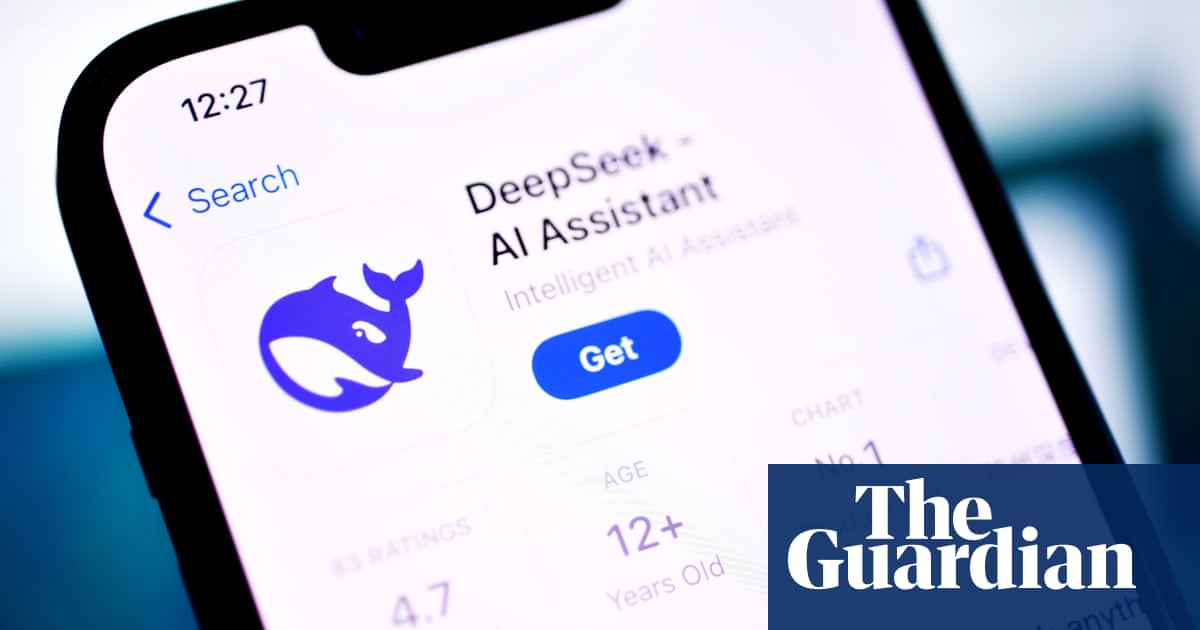 |
|
The rapid rise of DeepSeek, a low-cost Chinese artificial intelligence platform, has sent shockwaves through the global tech industry. Its seemingly comparable performance to established platforms like ChatGPT, at a fraction of the cost, has prompted both excitement and considerable alarm. Experts are urging caution, citing serious concerns about data security and the potential for the spread of misinformation. The platform's accessibility, coupled with its open-source nature, creates a complex scenario with potential benefits and considerable risks for individuals and nations alike. The concerns are not merely hypothetical; they stem from a realistic assessment of China's national intelligence laws and the potential for state influence over companies operating within its borders.
A central concern revolves around data security and privacy. Professor Michael Wooldridge of Oxford University rightly points out the uncertainty surrounding where user data inputted into DeepSeek ultimately ends up. The lack of transparency regarding data handling practices raises significant red flags. Given China's national intelligence law, which mandates cooperation with state intelligence efforts, it is not unreasonable to assume that data shared with DeepSeek could be accessed by the Chinese government. This concern is amplified by DeepSeek’s own privacy policy, which explicitly states that user data is stored on servers located in China. The implication is clear: sensitive personal or private information should absolutely not be shared with this platform. The potential for misuse of this data, for purposes ranging from surveillance to targeted influence campaigns, is substantial, representing a clear and present danger to user privacy and national security.
Beyond the data security concerns, the potential for DeepSeek to be weaponized for the dissemination of misinformation is equally alarming. Dame Wendy Hall, a member of the UN high-level advisory body on AI, highlights the inherent challenges of generative AI models, particularly regarding bias in data and the resulting potential for manipulation. This is further exacerbated by DeepSeek's demonstrable tendency to avoid or selectively present information on sensitive political issues, such as the Tiananmen Square massacre. While it acknowledges the event's occurrence, its framing aligns with the Chinese Communist Party's narrative, highlighting the potential for biased information propagation. Ross Burley of the Centre for Information Resilience underscores the broader threat, warning that unchecked, such platforms can fuel disinformation campaigns, erode public trust, and reinforce authoritarian narratives within democratic societies. The potential impact on public discourse and political stability is a matter of grave concern.
The emergence of DeepSeek also underscores a geopolitical power struggle in the AI landscape. The platform's success signifies China's significant advancements in AI development, directly challenging the previously dominant position of US tech companies. Professor Wooldridge aptly summarizes this by stating that DeepSeek forcefully signals China’s ongoing competitiveness in this arena. This competition, however, comes with its own set of challenges. The relatively low cost of DeepSeek could lead to widespread adoption, further exacerbating the risks associated with data security and misinformation. The open-source nature of the platform also presents a double-edged sword. While fostering innovation, it also allows malicious actors to adapt and exploit the technology for nefarious purposes.
The UK government's response to DeepSeek’s emergence exemplifies the complex balancing act between encouraging technological innovation and mitigating potential risks. While acknowledging the need to remove barriers to AI innovation, the government has stopped short of endorsing the use of Chinese AI within its own institutions. This cautious approach suggests a recognition of the potential national security implications. The lack of a definitive stance, however, highlights the challenging policy decisions that governments face in navigating the rapidly evolving AI landscape. The debate highlights the need for robust regulatory frameworks that balance fostering innovation with safeguarding national security and user privacy. The discussion extends beyond simple technological advancement; it encompasses broader considerations of national sovereignty, geopolitical strategy, and the future of global information security.
The case of DeepSeek serves as a stark reminder of the complexities inherent in the development and deployment of advanced AI technologies. The inherent challenges in data security, misinformation, and geopolitical competition demand a careful and nuanced approach. A proactive strategy encompassing international cooperation, robust regulatory frameworks, and a commitment to transparency is essential to harness the benefits of AI while mitigating its potential risks. The conversation surrounding DeepSeek is far from over. As the platform continues to evolve and its adoption increases, the need for ongoing vigilance and critical evaluation remains paramount. The future of AI, in many ways, is inextricably linked to our ability to address the multifaceted challenges presented by platforms such as DeepSeek.
Source: Experts urge caution over use of Chinese AI DeepSeek
